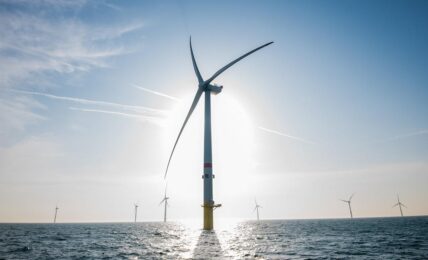
The European Financial Reporting Advisory Group (EFRAG) announced the release of its voluntary sustainability reporting standard for non-listed SMEs (VSME), aimed at enabling micro-, small- and medium-sized companies to report on ESG issues in a simplified and consistent way.
EFRAG, a private association majority financed by the EU, was mandated by the European Commission in June 2020 to prepare for the new EU sustainability reporting standards (ESRS) underlying the new Corporate Sustainability Reporting Directive (CSRD).
The organization was also asked to develop voluntary sustainability reporting standards for non-listed SMEs, who do not fall under the scope of the CSRD, but who nevertheless increasingly face growing demands for sustainability-related information from large companies and banks seeking value chain ESG and climate data.
In its mandate to EFRAG, the Commission said that the development of voluntary standards for non-listed SMEs would help small businesses to “standardise the sustainability information they wish to report, creating better opportunities to obtain green financing and thus facilitating the transition to a sustainable economy.” In its statement announcing the release of the new standard, EFRAG added that the VSME was designed to “replace the current multiple and uncoordinated questionnaires and ESG data requests” facing these companies.
The new publication follows the release by EFRAG in January of its exposure draft of the VSME, and a subsequent consultation for feedback on the proposed standard. Following the consultation, EFRAG said that it has implemented additional simplifications into the new standard.
Among the key simplifications included in the new VSME introduced by EFRAG is the replacement of the materiality analysis used in the CSRD with an ‘if applicable’ principle, aimed at outlining circumstances that trigger disclosure on sustainability issues in alignment with the ESRS’ ESG topics. EFRAG said that the consultation revealed that the materiality analysis was considered too complex by SME’s, in addition to being costly, while banks and investors were wary of the reliability of the results of the SMEs’ materiality analysis.
Going forward, EFRAG said that it will undertake a series of initiatives in 2025 to support the implementation of the VSME, including plans to issue guides and educational materials, conduct awareness raising events, and to monitor emerging tools and platforms.
Patrick de Cambourg, the EFRAG SRB Chair, said:
“The issuance of the VSME confirms EFRAG’s commitment to contribute to a more sustainable economy. VSME is designed to support the availability of simple but relevant sustainability-related data. It aims at reducing the burden for SMEs currently confronted with multiple uncoordinated data requests and, when supported by the appropriate online platforms and tools, will offer new business and financing opportunities as well as additional management insight to the reporting companies.”
Click here to access the new standard.



